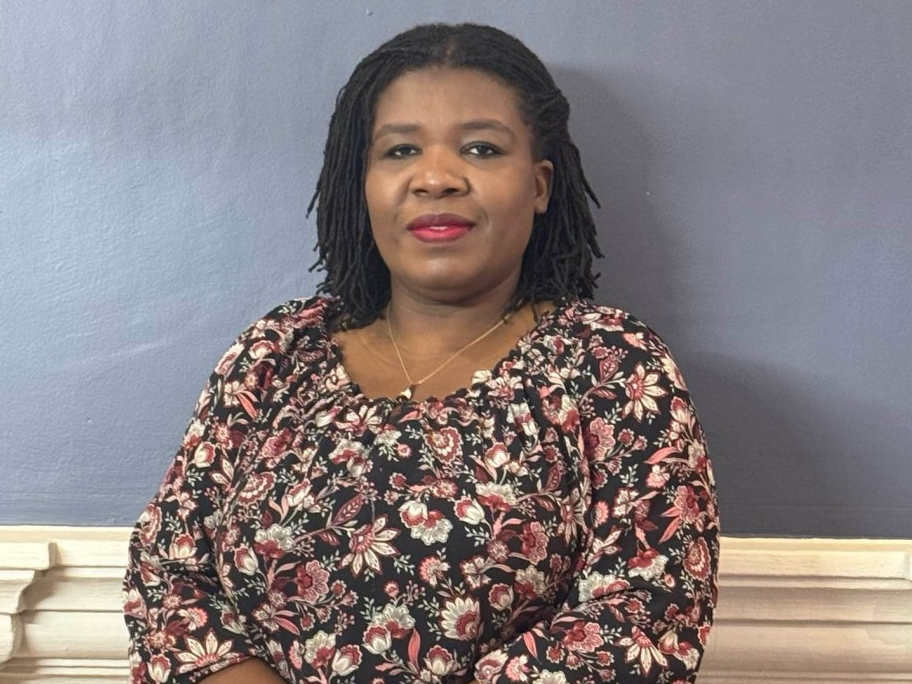In Zimbabwean tradition, when a man marries, he offers a “mother’s cow,” traditionally called “mombe yaamai,” to his mother-in-law as a token of gratitude for raising his bride.
The gesture is rich in symbolism, representing honour, respect and the recognition of women’s labour within a society where cattle ownership has long been a male preserve.
It is this symbolism that inspired The Mother’s Cow Project, a transformative dairy initiative launched in Mashonaland East Province by Aulline Chapisa, who’s the country director of Christian Aid Zimbabwe. Her goal: to use culture as a tool to show that women, too, can own and manage livestock—and make a living by doing so.
Under Chapisa’s leadership, Christian Aid Zimbabwe has been weaving tradition, faith and development into one fabric of transformation—tackling poverty, gender inequality and climate vulnerability with approaches that honour local wisdom while advancing social justice.
A journey shaped by resilience
Born the first child of separated parents in Zimbabwe, Chapisa spent her early years on her grandparents’ farm. Growing up without parents made her introspective and courageous.
“When you’re a child of a single parent in a big family, people look at you differently. You have to be strong and speak out for yourself,” she said.
Her early encounters with injustice led her to study law at the University of Zimbabwe, where she graduated in 2002.
After practising briefly with Warara and Associates in Harare and later working at the Zimbabwe Revenue Authority, she realised her calling was in human rights, not the courtroom.
So she opted for a Master’s degree in Human Rights at the University of the Free State in South Africa in 2006 and her transition from legal practice to development work took off when she joined the Southern and Eastern Africa Trade Information and Negotiations Institute (SEATINI) the same year. There, she led projects exploring the intersection between trade agreements and the right to health.
Later in 2010, she moved to the Friedrich Ebert Stiftung (FES), a German political foundation, where she spent 12 years managing programmes on workers’ rights, gender justice and youth leadership. It was during this period her understanding of solidarity across borders deepened.
“Law is a privilege,” one of her professors had told her. “You can use it to protect the elite, or you can use it to advance the rights of the poor.” And Chapisa chose the latter.
Faith in action
In 2023, she became the Country Director of Christian Aid Zimbabwe, a position that perfectly meshes her faith with her activism.
“Working for Christian Aid feels like serving God and doing what I love at the same time,” she said.
Founded in 1945 by UK and Irish churches, Christian Aid established its Zimbabwe office in 1987. Chapisa assumed leadership at a time when the organisation was implementing its global strategy, Standing Together, built around four pillars: gender justice, climate justice and resilience building, peacebuilding and social cohesion, and governance and rights.
Under this framework, her team works around building resilient communities, empowering women, and supporting systems that enable social and economic justice across all ten provinces of Zimbabwe.
“Poverty in Zimbabwe has a female face,” she said. “So we try to empower women, knowing that they are the ones responsible for feeding children and taking care of families.”
The Mother’s Cow initiative in Mashonaland East embodies that philosophy. By rooting the in culture—where a son-in-law gifts a cow to his mother-in-law—Christian Aid reframes heritage as a bridge towards gender equity.
“We named this project The Mother’s Cow in order to bring out the importance of our culture that recognises that women can also own cattle,” she explained. It’s been widely embraced by communities and even commended by the government.
Beyond economic empowerment, Christian Aid’s work also prioritises humanitarian response—from providing food during droughts to supporting communities during cholera outbreaks.
Each intervention is designed with sustainability in mind, ensuring that communities not just recover but also grow stronger.
Their work in climate-smart agriculture offers one of the clearest demonstrations of this philosophy. Zimbabwe’s agriculture-based economy has been beset by unpredictable weather patterns with devastating consequences for rural livelihoods.
To address this, Christian Aid has worked with the government and local partners to train farmers in climate-responsive techniques.
“We support communities to move from old ways of farming into more climate-responsive methods,” Chapisa said. “That means growing resilient crops like small grains instead of maize, which needs more rain, and practicing conservation agriculture that conserves moisture.”
These strategies go beyond changing what people grow; they also transform how communities farm. Through farmer learning groups and peer networks. Climate-smart agriculture has improved nutrition, stabilised household incomes, and indirectly reduced domestic tensions.
“When there’s more income, there’s more peace,” she observed.
Addressing GBV in Zimbabwe
Tackling gender-based violence (GBV) is another cornerstone of Christian Aid Zimbabwe’s work. In Zimbabwe, approximately one-third of women between 15 and 49 have faced physical violence, while about 1 in 4 have experienced sexual violence after turning 15.
She is acutely aware of the complex role faith institutions play in this context. “Sometimes, churches have been accused of being complicit in gender-based violence,” she admits. “When survivors approach pastors, they’re often told to pray without being given practical support.”
To change that, Christian Aid provides training, counselling tools, and theological frameworks for pastors and churches that enable them to respond effectively to GBV.
The organisation’s work in this area also includes theological advocacy that challenges harmful norms and encourages faith leaders to become agents of justice within their congregations.
Still the organisation’s outreach is inclusive. “We work with people of all faiths and none,” she clarified. “We also promote interfaith dialogue and interventions; you don’t have to be a person of faith to work with Christian Aid.”
As Christian Aid marks 80 years of global service, Chapisa highlights the organisation’s emphasis on research and evidence-based intervention. “Besides working with the people, we also do a lot of research and knowledge production,” she notes.
Under her leadership, Christian Aid Zimbabwe has earned national recognition and was recently nominated by the Zimbabwe National Association of NGOs for the Donor/Development Partner of the Year Award, alongside major donors like the European Union.
“For me, that was like icing on the cake,” she said with a smile. “It validated the impact we’re making in the country.”
In 2024, Chapisa secured a PhD in Law from the University of Zimbabwe. Her doctoral research focused on the legal regulation of domestic workers—a group that she passionately advocates for.
“Domestic workers make all other work possible,” she stressed. “While we talk about women breaking glass ceilings, there’s still a group of women sitting in the basement.”
Her advocacy stretches her professional role—writing, mentoring and creating spaces for others to lead.
Beyond support from churches in the United Kingdom and Ireland, Christian Aid Zimbabwe thrives on strong local partnerships, which help sustain its wide-ranging programmes.
Looking ahead, Chapisa envisions Christian Aid’s footprint expanding across borders. she said. “Climate change does not respect boundaries,” she said. “It affects people across Southern Africa.”
Her leadership is rooted in one unshakeable belief. “Poverty is not a mistake of nature; it’s man-made. And if men created it, men can end it.”
Summary not available at this time.






